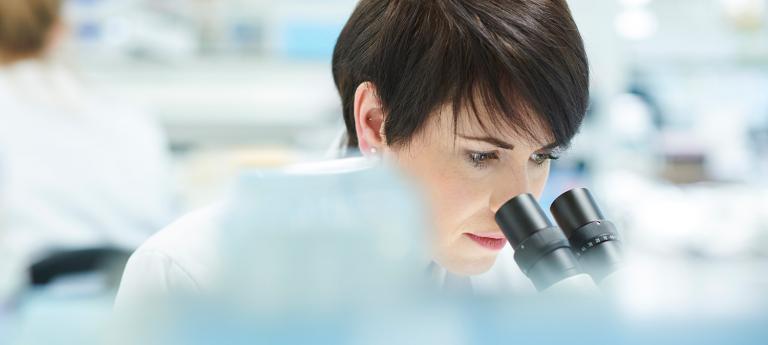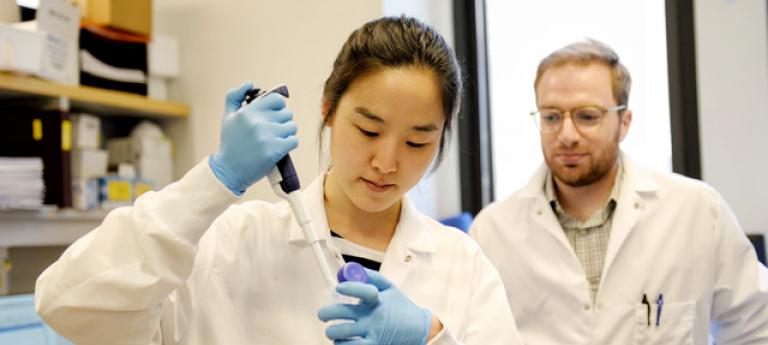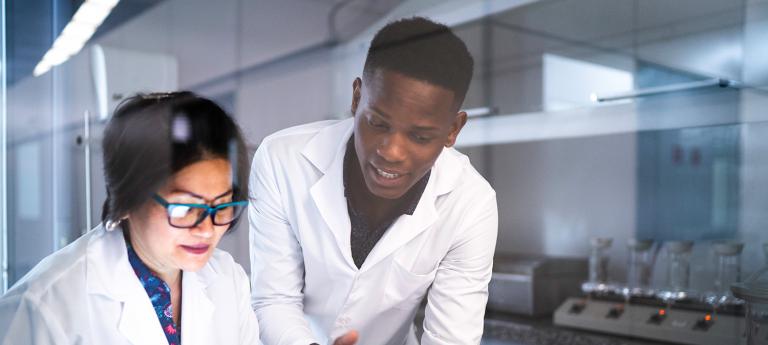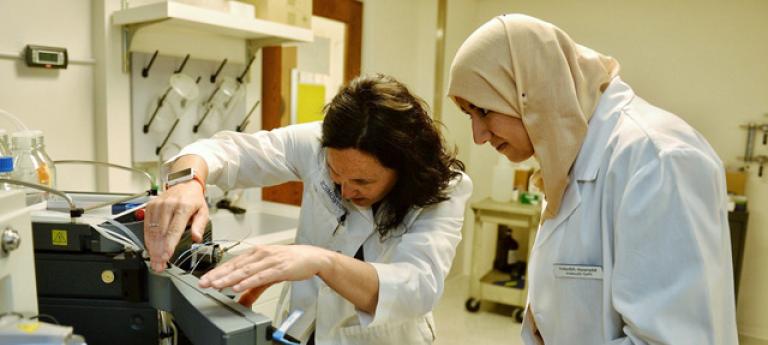What to Expect
Beginning in July, you'll embark on lab rotations alongside research faculty, participate in coursework with your peers and find your fit in one of 11 biomedical PhD programs. Your early arrival allows you to complete a research rotation before classes begin in late August. As a BSTP student, you'll complete at least three lab rotations, learn new techniques and get acquainted with faculty members. During your lab rotations, you can take part in journal clubs, research seminars and lab meetings to help you to gain a realistic feel for the environment.
If you are like most students, you'll take an introductory course to modern cell and molecular biology, which provides a strong foundation for research in all of the PhD programs of the BSTP. (Students with master’s degrees can place out of this course and take more advanced offerings.)
Midway through your first year, you’ll choose your dissertation advisors and laboratory join the PhD program that best suits your scientific training approach.





